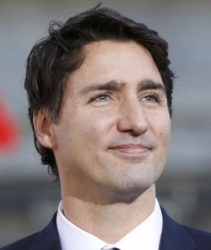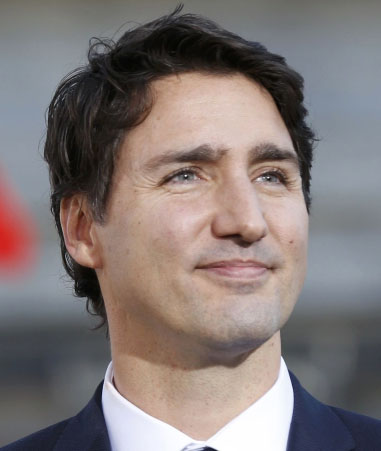OTTAWA, (Reuters) – Canadian Prime Minister Justin Trudeau, who came to power promising to run an open and ethical government, is embroiled in allegations over political fund raisers that could tarnish his image as a youthful reformer.
Trudeau was pressed hard by opposition leaders yesterday about newspaper reports that select donors to the ruling Liberal Party enjoyed privileged access to fundraising events where the prime minister and cabinet members spoke.
Although Trudeau denies he has done anything wrong, the affair – as well as a widely perceived misstep over electoral reform – is raising questions as to whether his year-long honeymoon with voters is finally over.

“I think it’s already tarnished his image because you’re getting this pile-on of all these stories. He’s on the defensive in Parliament and it’s going to continue,” said University of Toronto politics professor Nelson Wiseman.
Awkwardly for Trudeau, accountability rules he issued after taking power in November 2015 state “there should be no preferential access to government, or appearance of preferential access” for people who contribute to politicians and parties.
“Trudeau’s ethics talk has not been followed up with ethics walk by him and his ministers,” said Duff Conacher of the advocacy group Democracy Watch.
The 44-year-old prime minister – who has leveraged his youth and energy to push through a pro-feminist reform agenda – is now on the back foot in the House of Commons, forced to fend off daily accusations of wrongdoing.
“When will the prime minister finally admit that selling access to raise money for the Liberal Party is unethical?” Rona Ambrose, interim leader of the official opposition Conservatives, asked Trudeau in Parliament.
Trudeau has repeatedly noted no rules were broken during the events which, according to the Globe and Mail newspaper, included a fundraiser where an insurance tycoon and Chinese-Canadian billionaires were among donors the prime minister gave a speech to. Individuals can give a maximum of C$1,500 to a party every year while corporate and union donations are banned.
The challenge for Trudeau is that the last Liberal government before his, that of ex-prime minister Paul Martin, was defeated in 2006 amid a patronage scandal that helped keep the party out of power for almost a decade.
“The issue of money related to politics … is one of those things the Liberals really really want to distance themselves from,” said Darrell Bricker of Ipsos Public Affairs.
“The more time you spend talking about it – and it’s not a topic you want to talk about – the harder it is to get people to focus on the things you want them to talk about,” he said.
Liberal legislators in the House of Commons clearly look uncomfortable whenever Trudeau is pressed on the matter.
“We’ll have problems if people think we are playing games with the system,” said one official.
That said, Trudeau is in no immediate danger. Polls put the Liberals far ahead of the two main opposition parties, who are both holding leadership races that will not end until 2017, and the next election is in October 2019.
“The honeymoon is over but the opposition can’t take advantage of it. They’re headless,” said one member of the Liberal parliamentary caucus.

